30 years ago, a little grey box changed the world forever. It pulled a niche hobby away from being marketed primarily to children, and to an adult pastime of the future just as at home in the back of a nightclub as tucked away under your (extremely heavy) television. Forget the impact of the Sony PlayStation on gaming, it was an impact on culture that changed the trajectory of millions of lives. So all these years later – grey box turned to white obelisk – where does PlayStation find itself with the PS5 and the rest of its gaming suite in 2025?
For starters, with some truly excellent games. There’s no denying that. From first-party big wins to canny third-party partnerships, our best games of 2024 list is stacked with console exclusives. At the same time, it’s been a year absent of PlayStation’s most bankable franchises. Which isn’t necessarily a bad thing. It means we feel poised on the edge of huge new updates, all while PlayStation has proved it can still make an impact without trotting out fast releases of purely the first-party big names.
As 2025 fast approaches, there’s already plenty that PlayStation fans can look forward to as well, as you can see on our upcoming game releases list. Even so, it’s not been a year of only successes for PlayStation. How could it be given how rocky the industry has been? Mass layoffs and studio closures have continued across the industry, affecting many at PlayStation directly. Meanwhile, some game releases – even those backed by truly massive licensing – have tripped and fallen. How did we get here? We’ll not waste thousands or words on every bump in the road, but the highlights really are quite indicative.
A massive, surprise live service success
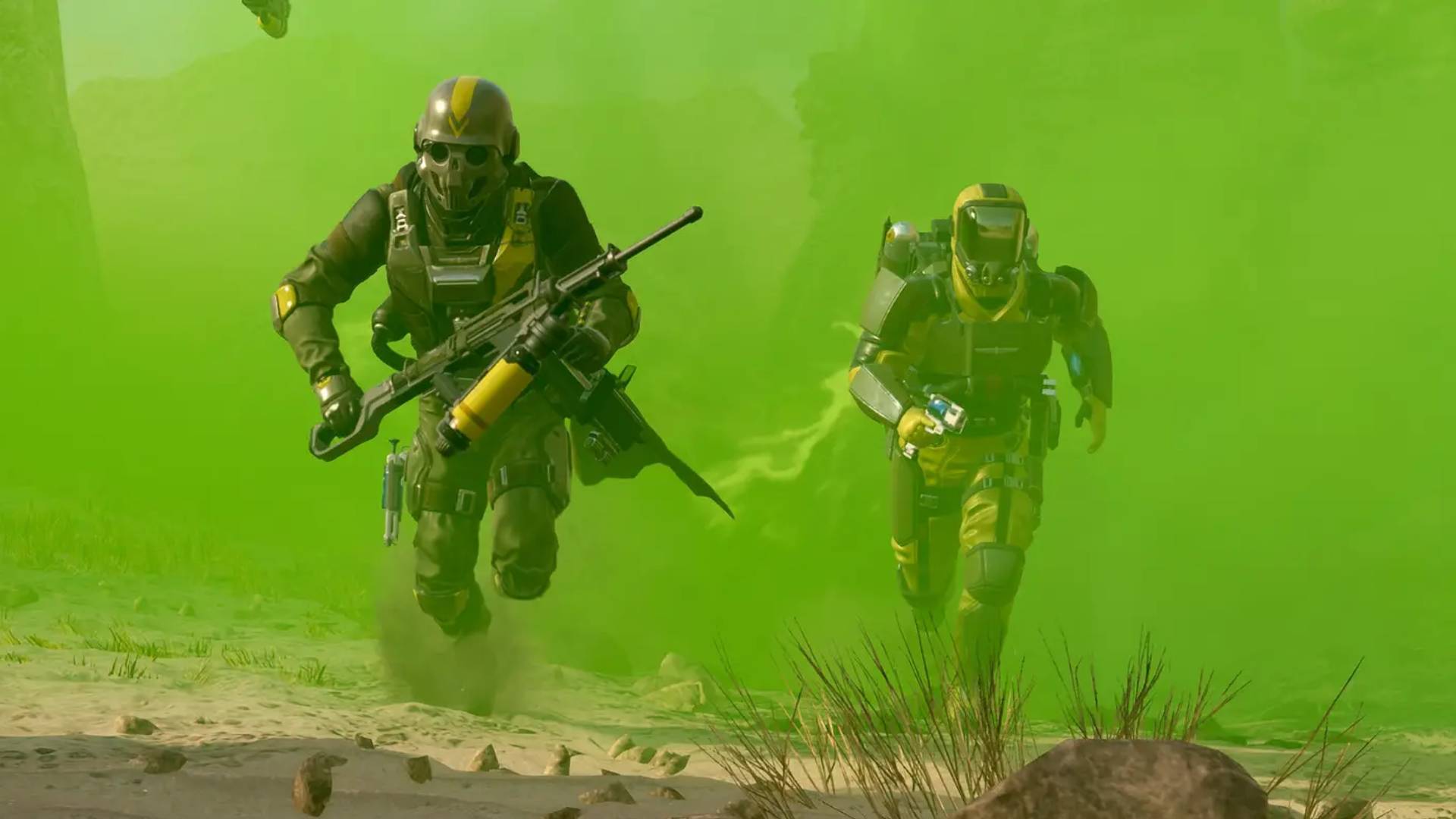
I was always rooting for Helldivers 2 as someone who had some absolutely fantastic co-op sessions in the Arrowhead Game Studios’ original top-down shooter. And boy doesn’t it look shiny? Nice to see Sony putting some money behind this little indie studio, but it’ll likely go a little under the radar once aga– oh good lord Helldivers 2 is massive.
Deservedly so too. Aided by a simultaneous PC release (rare for PlayStation, who leaves PC ports hanging for many months usually), the momentum of this co-op bug-and-robo-blaster only grew as word spread about intense-yet-slapstick swarm warfare. With over-the-top action, and friendly fire, almost every titular helldive would lead to a story to tell, and, importantly, a clip to share.
With a budget price tag, the barrier to entry was low, and the more people joining in meant even more players, even more matches, and even more fantastic moments for everyone involved. Armed with a canny and flexible update structure and an aversion to placing players on the traditional style of live service treadmill, Helldivers 2 was and is an exciting breathe of fresh air in a truly packed space
In fact, it was enough to give pause to those cynical about Sony Interactive Entertainment president and CEO Jim Ryan’s dedication to having PlayStation develop and launch several live service games into the packed space. Having announced his resignation back in September 2023, could Helldivers 2’s winning launch be a final success, a milestone trajectory to show he’d left the company on the right track?
A massive, surprise live service failure
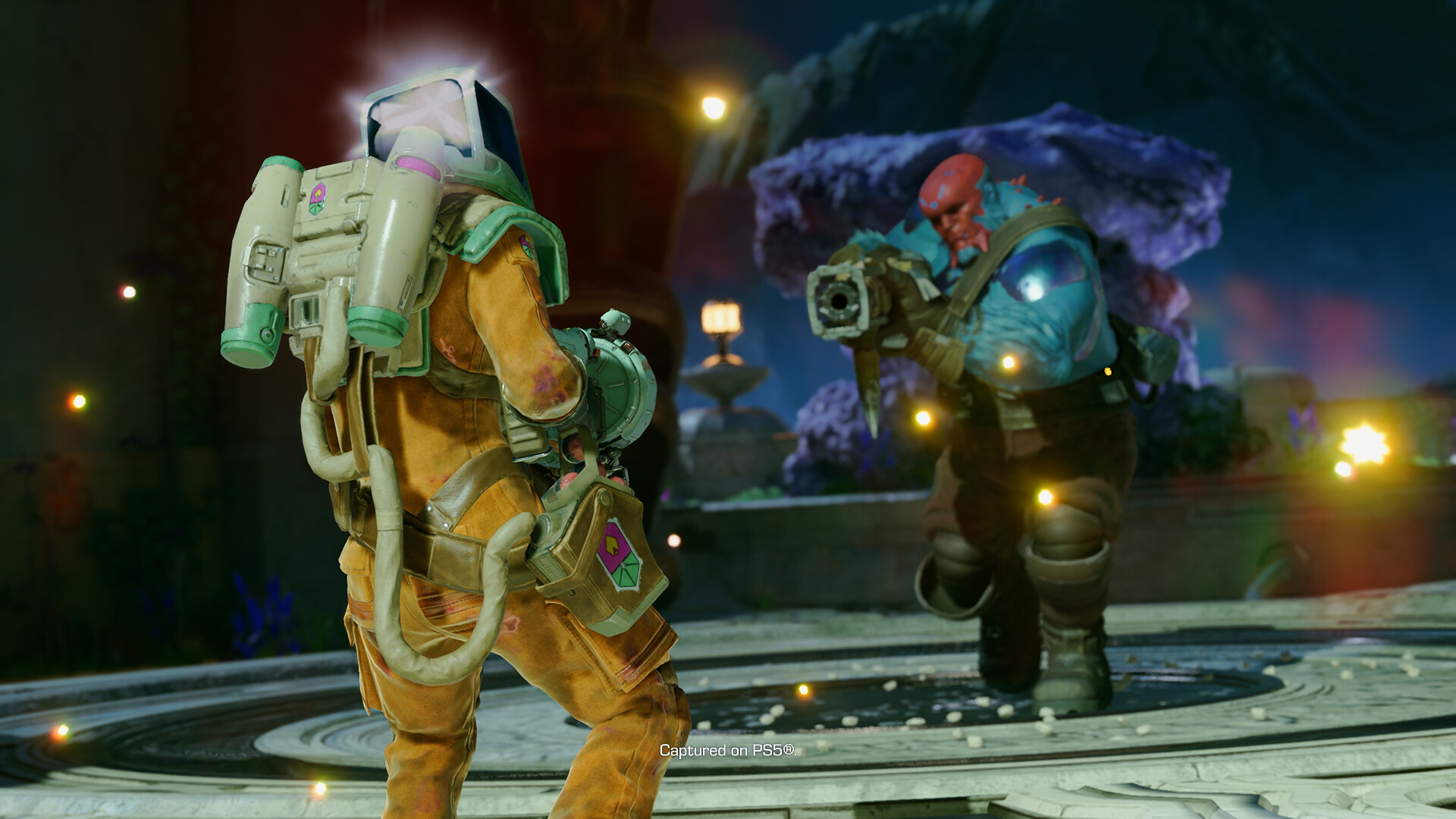
Not so much, as barely a fortnight after Helldivers 2’s launch, Sony London Studio, who had been working on one of those other live service games (an unnamed urban fantasy one), was suddenly shuttered. It was just one of many PlayStation studios affected by a big round of layoffs that would continue. And then Jim Ryan was out of the door by March. Surely things would settle, right?
Two more announced, in-house live service games that PlayStation had gotten behind to push in a big way continued to tick along: Fairgame$ from Haven Studios, a sort of rival gangs heister we’ve still not seen much on yet; and Concord from Firewalk Studios, a spacey hero shooter with a retro-futurist aesthetic.
As Concord began to ramp up for an August 23 release, cracks started to show. CG-heavy trailers weren’t clicking, with the Guardians of the Galaxy-style tone and designs feeling like, well, just a Guardians of the Galaxy knock-off. Despite a decent 16-character roster, few really stood out – a far cry from obvious competitor Overwatch’s initial release which was all about centering simple-yet-memorable heroes and silhouettes. Things got worse when it was announced there’d be an early access beta a month before launch for those who pre-ordered the game (it was $40)… only to then have the conditions revoked last minute to be for anyone with PlayStation Plus, giving the impression there simply weren’t going to be enough players to make the beta work.
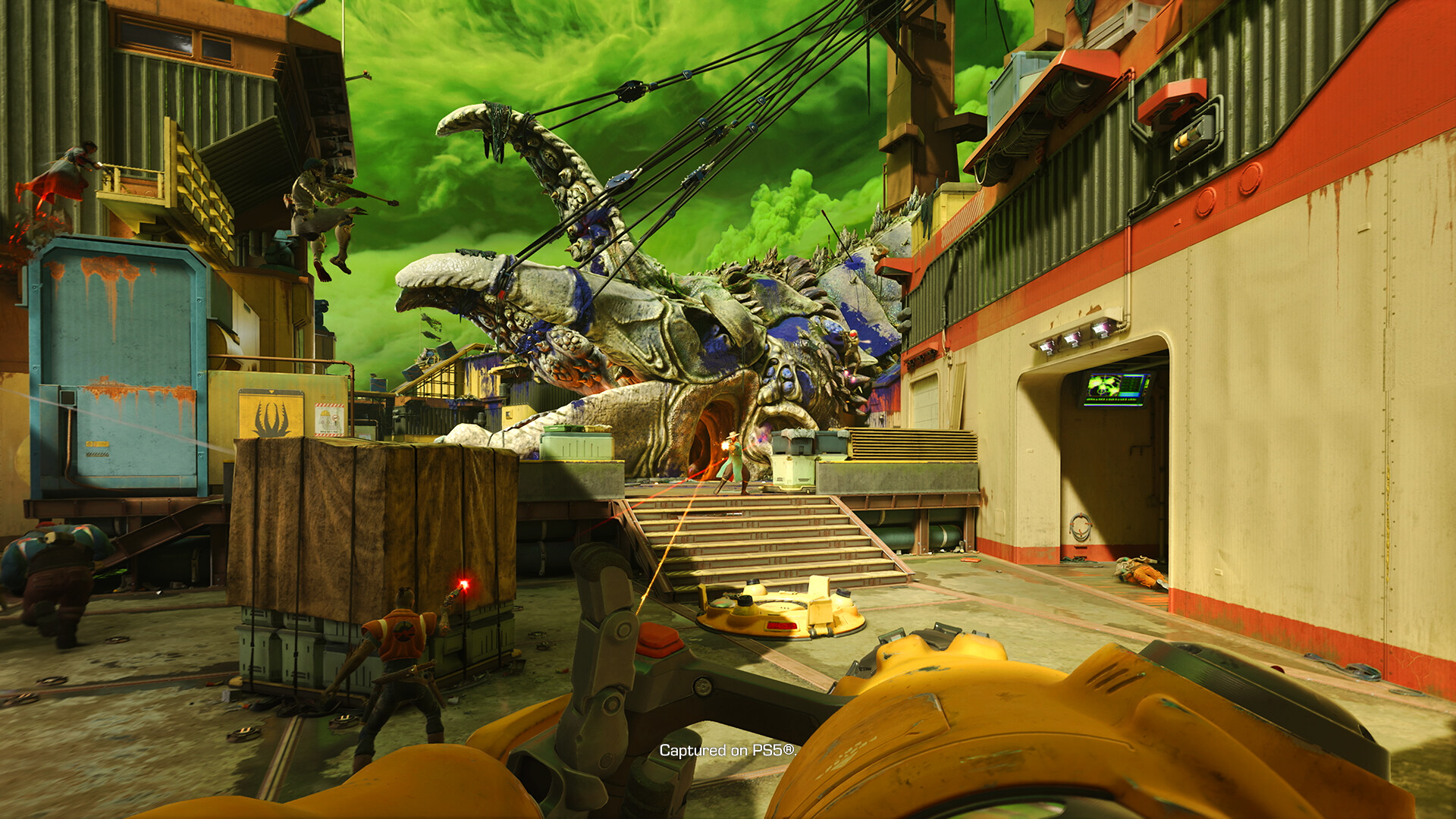
Then Concord released. And it… was actually quite good! In our Concord review, we gave it 3 stars (contrary to what some might say, that’s a solid score) and found its twists on standard hero shooter mechanics to be more than enough to justify its place among the competition, even while finding it had “little personality” to hook us into its world. Still, a fine foundation to build on – if not the instant phenomenons that Helldivers 2 or Overwatch were.
But what’s this? Two weeks after launch Concord was shut down, and players refunded. Then, just under two months later, Firewalk Studios was closed. This, despite an eight-year development cycle, and a massive budget. No attempt to save it, to try a new angle, to even go free-to-play. Just – poof – vanished. It’s not the only high profile live service failure. Suicide Squad: Kill The Justice league was not well received at all, and is soon to cease updates, but lasted longer than Concord. Likewise, Ubisoft‘s free-to-play XDefiant will also be shutting down, but, again, Ubisoft gave it more of a go. It doesn’t paint a pretty picture for PlayStation’s live service hopes.
Hardware holdout?
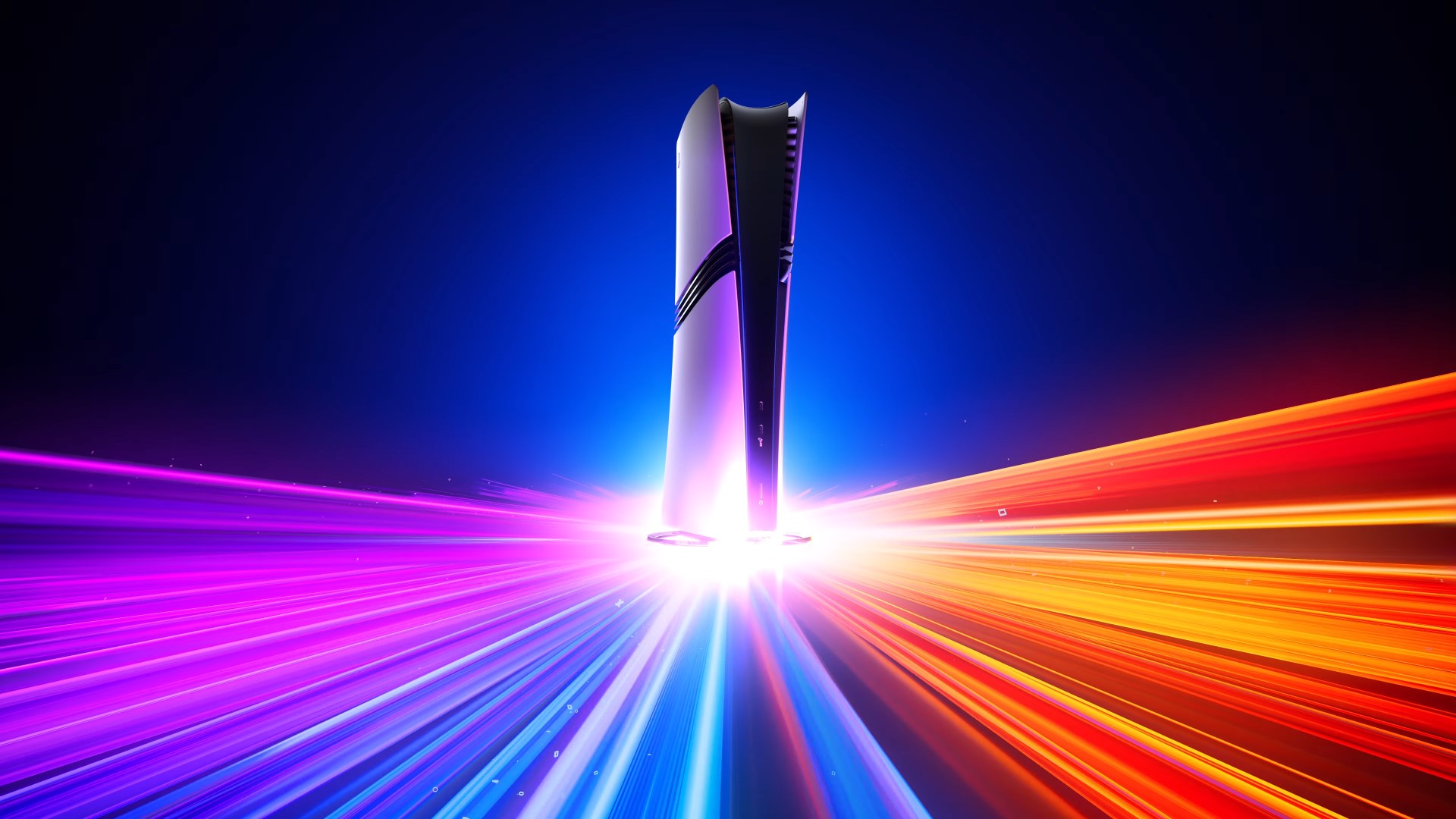
It’s not so much that PlayStation’s problems in 2024 have been due to massive disasters. Instead, it’s a case of frustratingly near-misses. After all, I’d love to be able to jump back into Concord, I just can’t. And it’s been the same for hardware. With plenty of support for last-gen platforms, both Xbox and PlayStation have struggled to make current-gen feel like a must-buy for their base consoles overall. True current-gen exclusives have been few and far between. The biggest benefit is just offering the superior experience compared to last-gen for similar titles – which for many in a bad economy isn’t the best pitch.
Likewise, PlayStation VR 2 launched last year, and featured some fantastic launch games including some developed by PlayStation itself. This year, it’s been crickets for first-party support, with the publisher reportedly dropping support for the platform. At the very least, there is now an official adapter to use it with PC, though stock has been quite hit and miss. Similarly, the PS Portal released this year, a rather swish handheld device that allows streaming of PlayStation 5 games from your home console. Something you could already do on other devices. It’d be perfect for cloud streaming, which is now being added – though it does beg the question of why the hardware launched before adding that support rather than figuring it out later.
The PS5 Pro has been the big release for the year. At around $700/£700, in our PS5 Pro review we were definitely impressed with the tech under the hood, but struggled to justify the high price point and the, frankly, diminishing returns of souping up games that for the most part are already fantastic for most people on the base PS5. Side-by-side stills can look stunning, but in play many of the detail enhancements can be hard to appreciate, and fade into the background. Not to mention the console upgrade didn’t launch alongside any particular shiny game meant to show it off. While the PS4 Pro was also aimed at a niche, its clear jump from simple 1080p to 4K support was an obvious benefit to anyone with an up-to-date TV. It may be telling that this gen Xbox hasn’t followed suit, and have stuck with their lower-spec option, the Xbox Series S, instead (which brings its own problems).
For the players
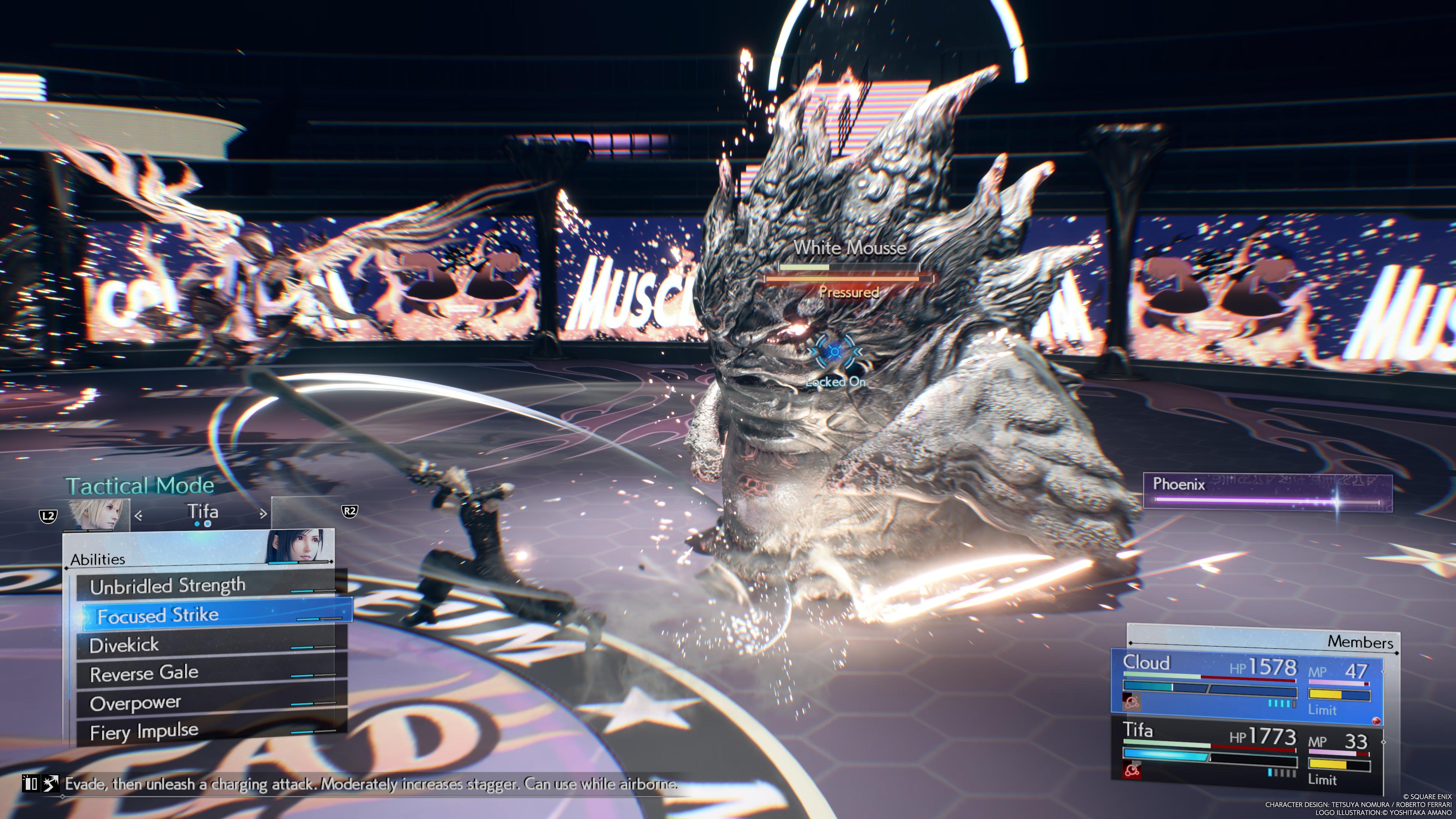
But, hey, you have to take the bad with the good. All the above things are really weird and often not great at all. But, ultimately, I’m someone who spent over 1,200 hours gaming on my PS5 alone this year, and most of that was fantastic. While I do think the platform could use more genuine exclusives, as someone who has tested a lot of cross-gen modern games on PS4 as well, I think the benefit of current-gen is huge simply in how much better they run. You truly couldn’t make me go back. It’s a simple fact that can often be overlooked.
The aforementioned Helldivers 2 was the GamesRadar+ game of the year this year. Astro Bot, a true PS5 exclusive, followed close behind. Final Fantasy 7 Rebirth cracked the top ten as well, another actual PS5 exclusive (though it feels like it’ll surely be ported eventually), and a series that’s long held strong brand association with PlayStation. The same goes for the Silent Hill 2 remake, a stunning horror endeavour that’s also a PS5 console exclusive (alongside PC). On top of that, PS5 has been a great place to play third-party releases from big blockbusters to creative indies. I’ve even been really enjoying the steadily-growing Classics Catalog of PS1 and PS2 games too. Even if the emulation work could use some improvement, it’s great to see the likes of Dino Crisis, TimeSplitters, and Sly Raccoon playable natively on PS5.
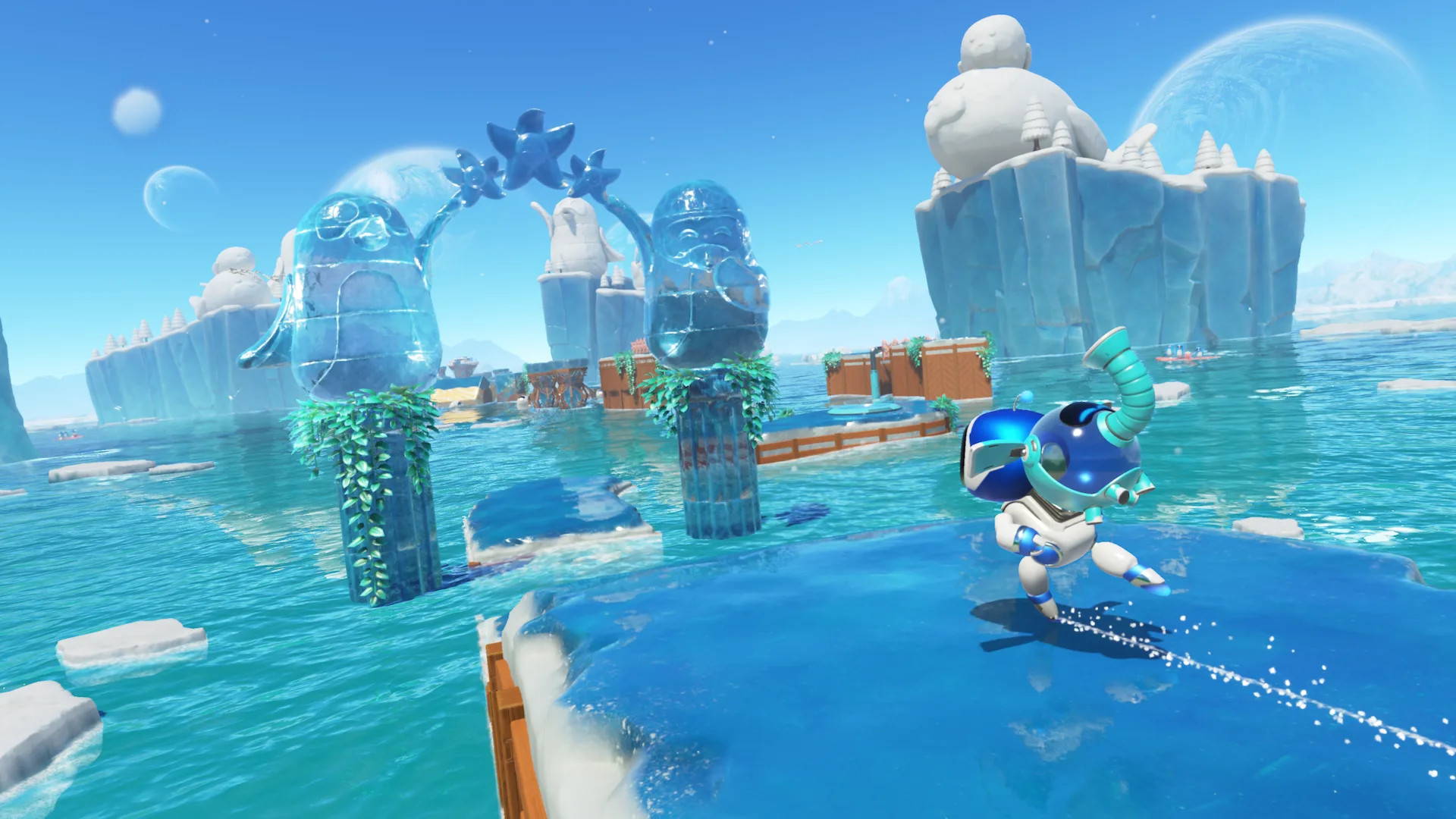
Indeed, PlayStation’s long legacy, given the 30th anniversary of the brand, is something the platform holder is at least somewhat aware of. This month saw the first release of PS5 themes (though, for now, they’re limited), transforming the UI to be inspired by the PlayStation platform of your choice. I’m almost a little surprised at how much joy something as small as giving the menu sound effects the PS2’s little blips brings me.
It all came together for Astro Bot in particular. What may be my personal highlight of the year is one that feels perfectly suited to PlayStation’s 30th anniversary. Team Asobi already captured my heart with its short-but-sweet Astro’s Playroom for the PS5 launch, and this full-length release recaptured that magic, refining and distilling it into pure platformer bliss. As little Astro hops between worlds, new gadgets constantly play with the DualSense’s haptic capabilities in interesting ways, and it just looks gorgeous.
Astro’s mission has him rescuing bot versions of hundreds of PlayStation icons from across the decades, with some levels even playing out as direct homages to the likes of Horizon or Uncharted. With that said, while it’s great to see so many games represented, it does serve to highlight how many beloved franchises have been left dead in the water across the PS4 and PS5 generations. Excitement at seeing the likes of Ape Escape or Sly Raccoon are tempered somewhat when they’ve had no games for years; as is seeing a nod to Concrete Genie only to remember developer PixelOpus was shuttered last year. But still, the game is fantastic, and one I’ve kept returning to (if only to smash my friends list’s speedrun times).
Gaming in the future
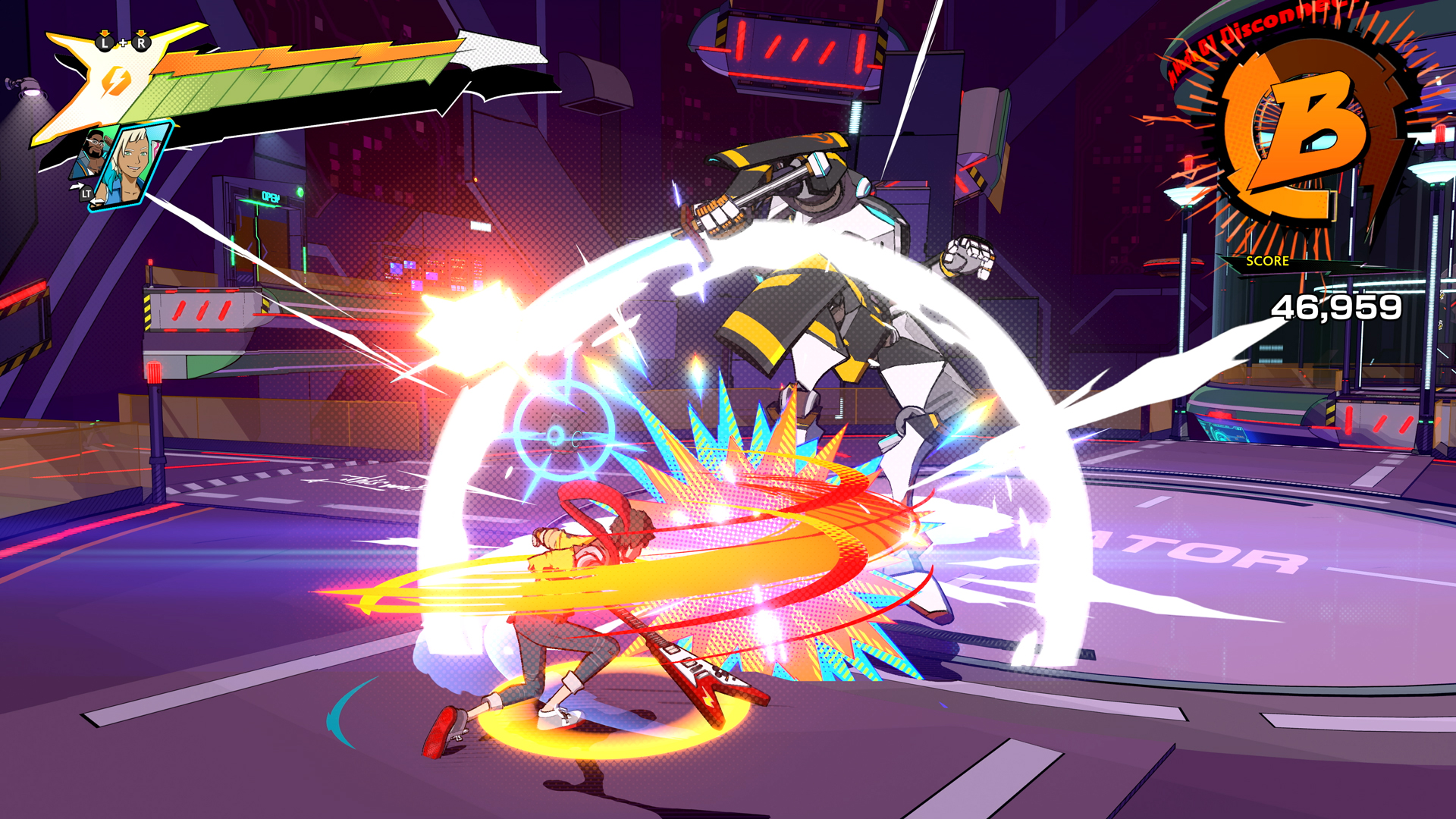
But, it also turns out, in the parlance of Xbox’s recent marketing campaign, that sometimes even a PlayStation is an Xbox. The console wars are a silly concept, especially in the modern era of gaming – and take that from someone who would have laid down their life for the Sega Mega Drive (but not the Sega Genesis, sorry US chums) back in the ’90s. So many games are multi-platform now that it feels pointless and exhausting to get too twisted up in it.
Still, it was a genuine surprise to see Xbox shift to bringing some of its first-party games to PlayStation, including some genuine system-sellers. With Xbox’s buyout of Call of Duty publisher Activision, it felt expected – promises to governing bodies aside – that to keep up sheer player numbers it’d remain multi-platform. Less so the likes of Hi-Fi Rush, Grounded, Sea of Thieves, and more that landed earlier in the year.
Even Indiana Jones and the Great Circle is set to land on PlayStation after a short window of Xbox and PC exclusivity (it comes in Spring). It’s truly a great time to game on PlayStation indeed when you have to worry even less about which platform to buy for exclusives if Xbox continues to expand their games onto what’s historically been a rival platform.
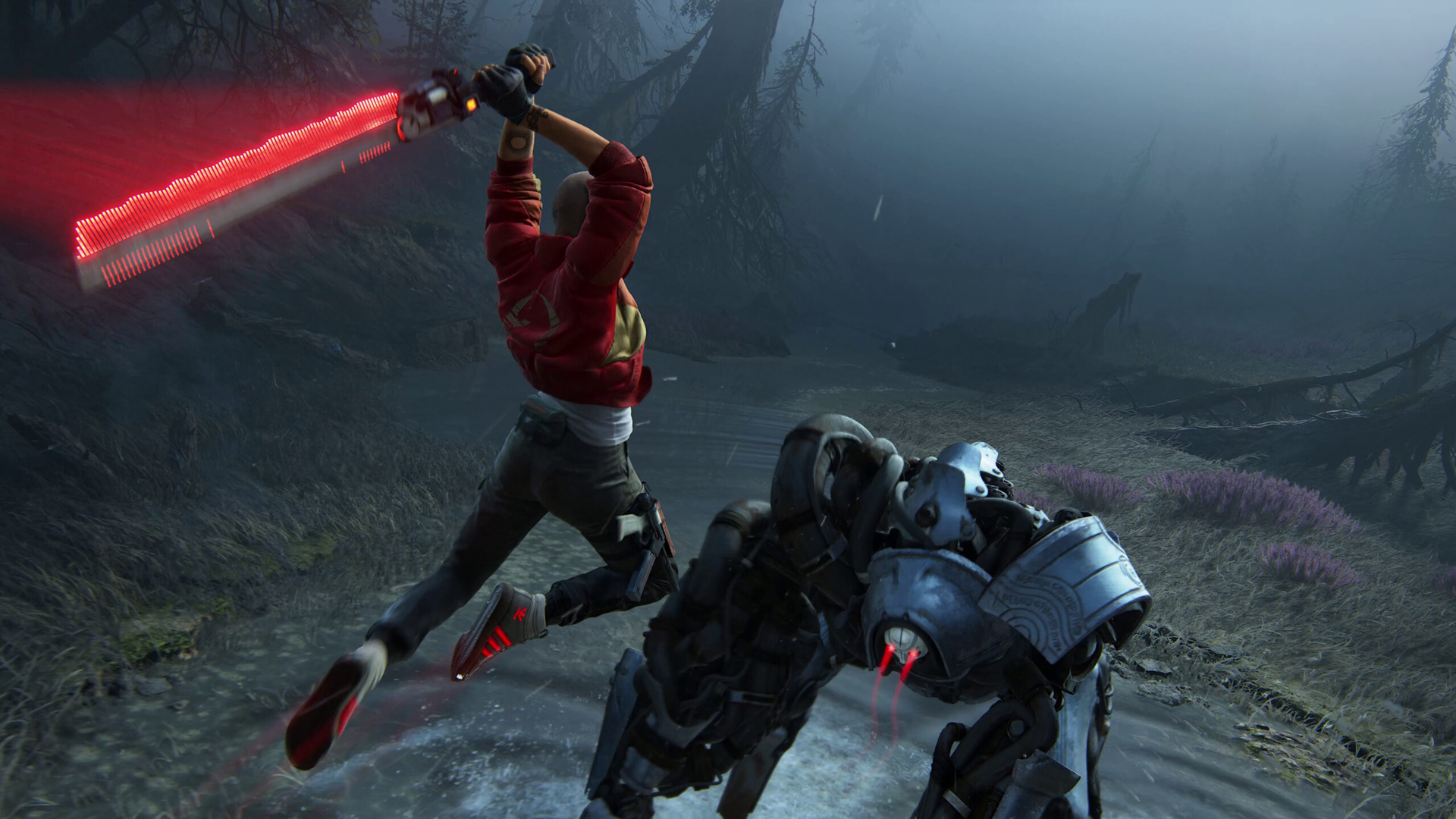
So what’s next? There’s plenty to look forward to, with Death Stranding 2: On the Beach from Kojima Productions and Ghost of Yotei from Sucker Punch Productions set to be the biggest PlayStation exclusives for next year. We also eagerly await more from Insomniac‘s Wolverine, which if it’s anything like the quality of the Spider-Man series, should be a spectacular success.
Meanwhile, after the cancellation of The Last Of Us multiplayer game, Naughty Dog has been entirely absent for the PS5 generation besides remakes and remasters, meaning their new sci-fi adventure Intergalactic: The Heretic Prophet has some heavy lifting to do. All this while Sony investigates a buyout of Kadokawa, a huge Japanese multimedia company that, of most interest to gamers, owns Dark Souls and Elden Ring developer FromSoftware. 2025 will be pivotal, then. But in what direction?
Curious about the other end of the spectrum? We’ve also dived deep into what 2024 has looked like for Xbox. What to add to your gaming watchlist? We’ve got the upcoming PS5 games for you to look through too!
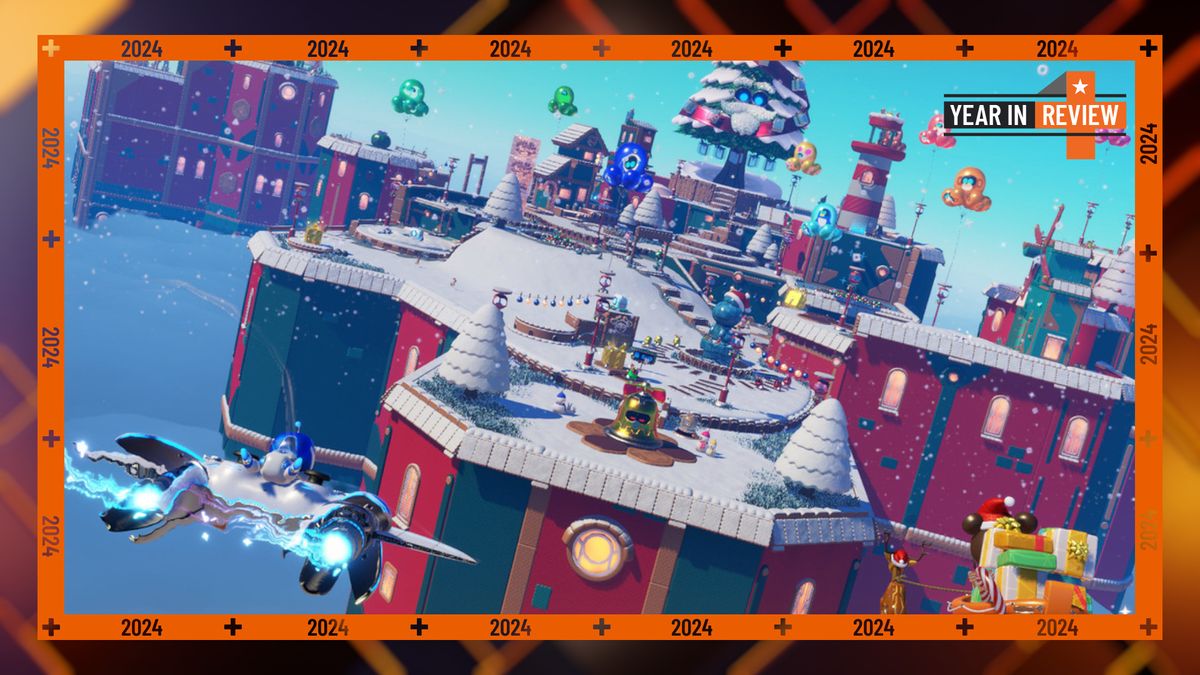

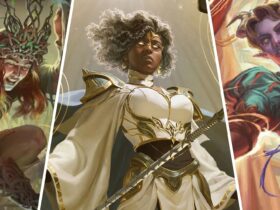





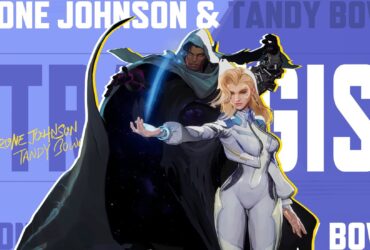
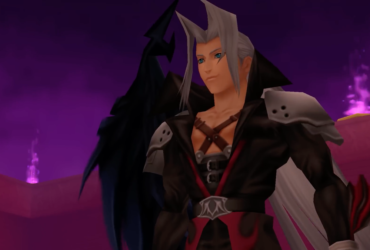

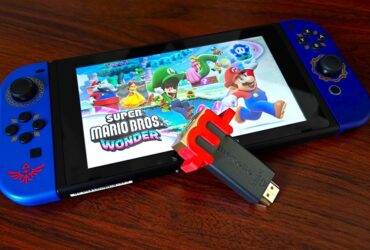
Leave a Reply